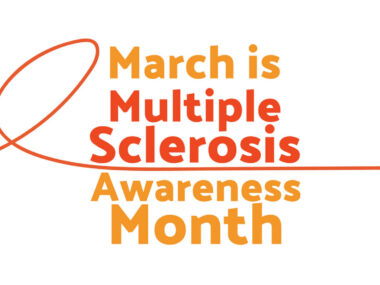Can Big Data Lead to Better MS Outcomes?
Written by |

 In a new study, researchers based at the Imperial College, London will follow in unprecedented detail the events and experiences in lives of people with multiple sclerosis (MS) in order to improve evaluation protocols for MS treatments.
In a new study, researchers based at the Imperial College, London will follow in unprecedented detail the events and experiences in lives of people with multiple sclerosis (MS) in order to improve evaluation protocols for MS treatments.
MS is estimated to afflict more than two million people globally, more than 100,000 of whom live in the UK and over 300,000 in the U.S. Symptoms affect individual patients differently, but common ones include fatigue, neuropathic tingling, speech issues and difficulty with walking and balance. In order to better understand MS and various treatments a system for collecting comprehensive data that reveals in-depth insight on MS patients’ experiences across large population is needed.
Initially, over a three-year interval, the OPTIMISE project, as it is called, will develop and deploy the tools necessary for collection of wide ranging data from people with MS additional to routine clinical assessment. The researchers will integrate data derived from brain scans, genomics, biomarkers found in blood samples, quality of life measures reported by patients, and data from movement tracking sensors into a single database. During the pilot project, the tools will initially be deployed through MS centers at Imperial and three other UK health care institutions before access to the approach is expanded for access by researchers worldwide.
OPTIMIZE is a joint working collaboration between Imperial College London and the biopharmaceutical firm Biogen Idec, both of which have longstanding commitments to developing therapies for people with MS. In comprehensively capturing and managing data using techniques that can be implemented on a large scale at low cost, the project will allow researchers to better monitor outcomes and evaluate new treatments. This will also help development of more personalized therapeutic approaches based on better understanding of individual factors contributing to MS progression.
[adrotate group=”4″]
 “This important collaborative project will aggregate data from MS patients and their carers to provide a detailed picture of how the disease affects them and how well current treatments work,” says Professor Paul Matthews OBE, MD, DPhil, FRCP, FMedSci, Principal Investigator on the OPTIMISE project and who holds the Edmond and Lily Safra Chair and is Head of Brain Sciences at Imperial College, in a release.
“This important collaborative project will aggregate data from MS patients and their carers to provide a detailed picture of how the disease affects them and how well current treatments work,” says Professor Paul Matthews OBE, MD, DPhil, FRCP, FMedSci, Principal Investigator on the OPTIMISE project and who holds the Edmond and Lily Safra Chair and is Head of Brain Sciences at Imperial College, in a release.
Transparency of data and open access are benchmark objectives of the OPTIMISE project, which will compile both clinical and patient-centered data. The longer-term aim is to make these data accessible to both researchers and to patients who contributed to its development. Biogen Idec has supplied funding initial development of OPTIMISE IT software. The research partners also intend to establish links with European MS registries that are already collaborating with Biogen Idec. The joint effort will bring additional in-kind resources for data analyses to bear in ways designed to benefit patients.
“This important collaborative project is underpinned by support from the National Institute for Health Research (NIHR) Imperial Biomedical Research Centre. It will enable a new level of clinical research for MS. It will aggregate data from MS patients and their carers to provide a detailed picture of how the disease affects them and how well current treatments work,” Professor Matthews observes. “Although led by Imperial, this initiative has grown out of a co-operative vision developed between most of the major MS centers across the UK. Looking forward, we intend that this public-private collaboration will grow with the same spirit of cooperation.”
Professor Matthews’ research is noted for its innovative translational application of clinical imaging for the neurosciences, techniques that have developed through exploitation of powerful synergies between the physical and quantitative sciences and medicine. Dr. Matthews was founding Director of two leading international research imaging centers: the University of Oxford Centre for Functional Magnetic Resonance Imaging of the Brain (FMRIB) and, later, of GlaxoSmithKline’s Clinical Imaging Centre (now a public spin out as Imanova, Ltd.) from 2005 to 2014. He was also a Vice President of GlaxoSmithKline Medicines Discovery and Development, making him one of a small number of senior clinical academics in the UK with industry experience.
Research by Professor Matthews and his team has extended application of advanced imaging methods in order to address a new range of clinical research questions, and he has collaborated closely with Oxford colleagues (especially Professor Stephen Smith) in development of applications for advanced structural and functional brain imaging.
These are incorporated into the open access FSL software distributed by the Oxford University Centre for Functional Magnetic Resonance Imaging of the Brain (FMRIB) — and are now one of the two most widely used image analysis software toolboxes worldwide.
 While at Imperial and GSK, Dr Matthews’s research group (then including Professor Thomas Nichols, currently at the University of Warwick) piloted approaches for extending these methods in pioneering properly controlled, prospectively designed, imaging genetics studies.
While at Imperial and GSK, Dr Matthews’s research group (then including Professor Thomas Nichols, currently at the University of Warwick) piloted approaches for extending these methods in pioneering properly controlled, prospectively designed, imaging genetics studies.
Professor Matthews’s development work on underpinning methods has focused primarily on applications for drug development and disease outcomes monitoring. His former, GSK-based, research team harnessed tools designed particularly for neuroscience drug development clinical experimentation. Their approach linked physiology and pharmacology that involved introducing and validating new PET radioligands and integrated PET/fMRI pharmacokinetic and pharmacodynamic studies with more conventional early phase clinical development outcomes.
An overarching objective has been to address the challenge of neurodegeneration associated with MS, and to enhance intrinsic brain repair and plasticity in aid of functional recovery. Dr Matthews’s more recent work in collaboration with Imanova Ltd. builds on existing studies of genetics and pharmacology associated with the latest generation of PET microglial imaging agents.
Among many other external commitments, Professor Matthews has served two terms on the MRC Neuroscience and Mental Health Board and is active on several committees. He is a member of the HEFCE REF Neuroscience Subcommittee for assessment of Neurosciences, Psychology and related areas; and a member of the Steering Committee for the UK Dementias Platform. He was awarded an OBE (Order of the British Empire) in 2008 for his services to neuroscience, and was elected to the Academy of Medical Sciences in 2014.
 Dr Fiona Thomas, Biogen Idec’s UK and Ireland Director of Medical Affairs, comments: “This innovative project heralds the first systematic and multi-centre collection of patient, physician and MRI data in the UK to better inform doctors, the health service and industry about patient needs. This will facilitate critical analysis of MS patient populations allowing clinicians to offer more personalized management of their disease.”
Dr Fiona Thomas, Biogen Idec’s UK and Ireland Director of Medical Affairs, comments: “This innovative project heralds the first systematic and multi-centre collection of patient, physician and MRI data in the UK to better inform doctors, the health service and industry about patient needs. This will facilitate critical analysis of MS patient populations allowing clinicians to offer more personalized management of their disease.”
The OPTIMISE portal will use a custom-made software platform developed at Imperial College London’s Data Science Institute as a repository to store, curate and analyze data. One of the project’s central elements will be an Open Access website (https://www.optimise-ms.org) that will allow researchers to share, manage and analyse data within a secure framework.
Patients can also use the system to report outcomes, to discuss the project with other participants, and to provide the researchers with feedback. Smartphone apps will capture GPS data from movement sensors in order to monitor patient mobility.
Sources:
Imperial College London
Biogen Idec
Image Credits:
Imperial College London
University of Warwick


